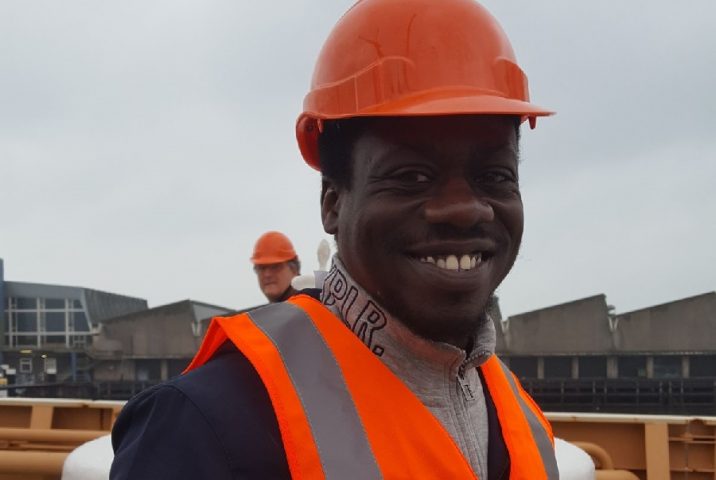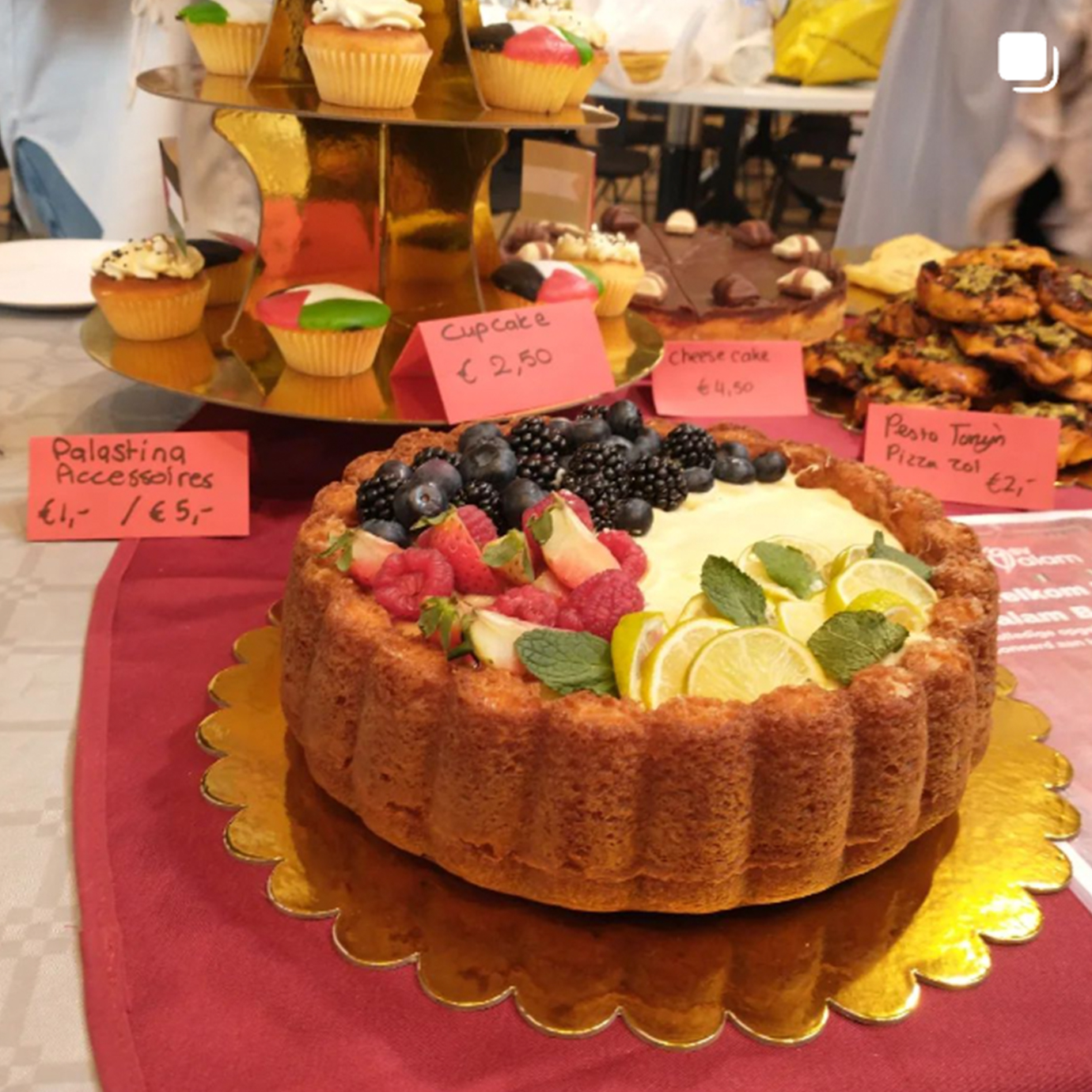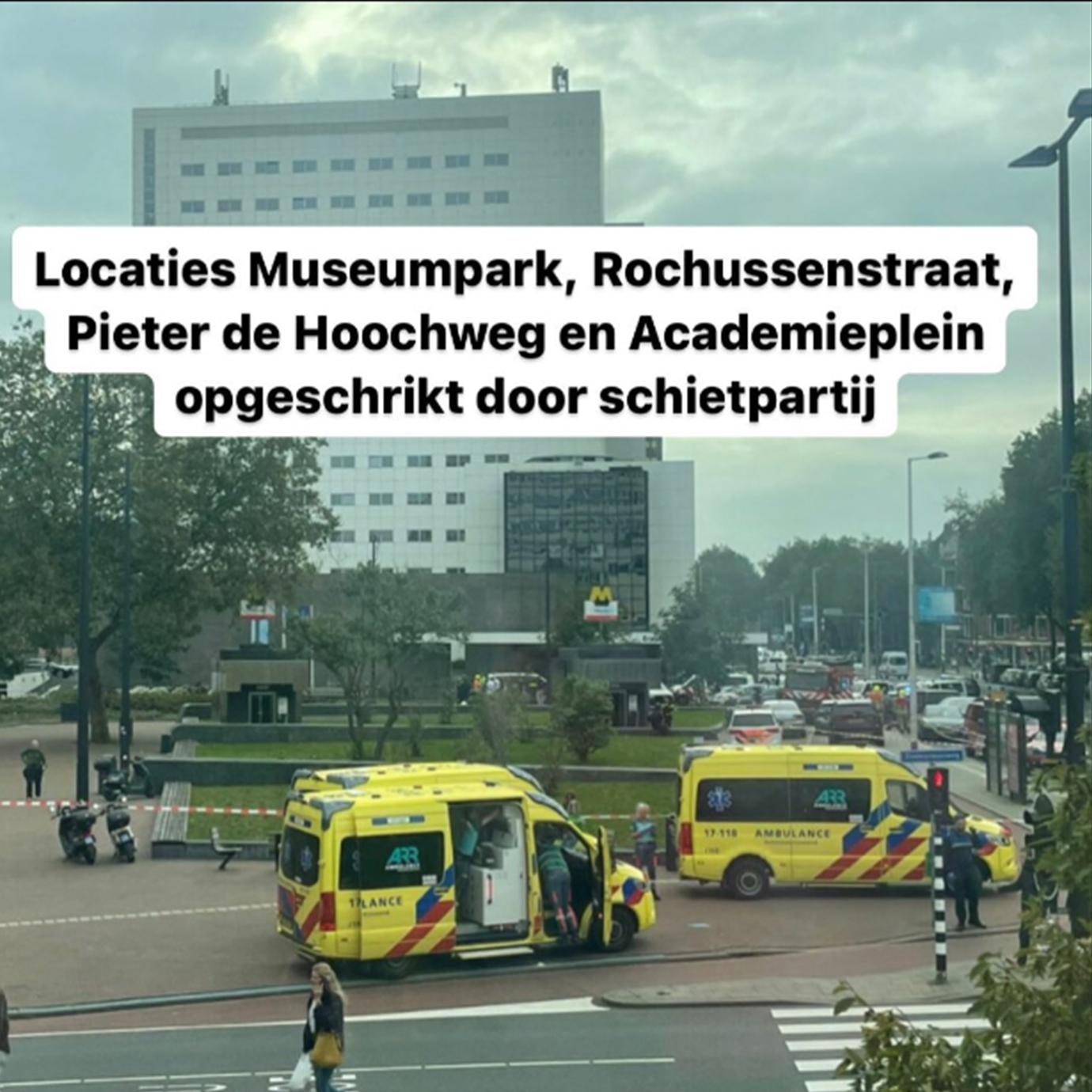Blockchain can foster transparency in the fishing industry
Gepubliceerd: 7 November 2019 • Leestijd: 2 minuten en 40 seconden • English Dit artikel is meer dan een jaar oud.Publishing an article in an international trade journal wasn’t the first thing on RBS student Bryan Horsu’s agenda, but his internship supervisor thought his Undergraduate thesis on blockchain in the fishing industry was interesting enough. The magazine agreed.

When we think of blockchain technology, we think of cryptocurrency such as bitcoin or ethereum. Rotterdam Business School (RBS) student Bryan Horsu decided to look at what this technology could mean for the fishing industry.
Blockchain is an emerging technology in the food industry
Blockchain is an emerging technology in the food industry. “It’s useful for process optimisation, food safety and sustainability, for example,” says Bryan. “In the future, consumers might be able to scan labels using an app to see exactly what’s in a product and where those ingredients come from. This makes the entire chain more transparent.”
The subject aligns with Bryan’s personal values, which include sustainability. “The fishing industry has complex supply chains and is connected to many other sectors. It is an important sector in terms of feeding the world’s growing population sustainably.”
Decentralised digital system
Blockchain is a ‘distributed ledger’, that can be used to record data from various parties in a decentralised digital system. This may include bank transfers, deeds of ownership, messages, and other data. Every party in the chain has a copy of the data, and it is therefore impossible to corrupt it. It’s quite complex, but Bryan has a simple metaphor: “Blockchain is comparable to DNA. All the information from previous generations stored in the DNA is passed onto the next. This provides unique data.”
‘Blockchain is comparable to DNA.’
During his internship at MatureDevelopment BV – a company that handles advice and business development for the fishing industry – Bryan’s supervisor asked him to look into the value of this new technology for this sector in particular.
Fraud and deception
One of the first and most important issues Byran encountered in his literature study was fraud. “I found that between 13 and 31 percent – over 50 percent in some regions – of the reported catches are estimated to being identified as the so/called IUU: illegal, unreported and unregulated activities”, says Bryan. “This illegal catch has an estimated value between 10 and 23.5 billion dollars every year.” These practices include selling cheap fish (e.g. pangasius) as more expensive fish such as sea bass. In addition, it’s difficult to trace where fish comes from and whether fishermen stay within their established catch quotas. With blockchain technology, this could be made more transparent.
Cheap fish, for example, is often passed off as more expensive fish.
‘Modern companies in this industry also want to work digitally and more efficiently,” says Bryan. “Blockchain can ensure stamps and signatures from all kinds of places are no longer a requirement for fishermen.” This is even more desirable for fish farms, where the supply chain is even more complex, e.g. when one fish serves as food for another fish.
Article based on Undergraduate thesis
With blockchain currently a trending topic, the idea of offering a publication to the sector’s trade journal arose. Bryan wrote the article with Paul van der Heijden, his supervisor, and Wesley Malcorps, PhD student at the University of Stirling and Bryan’s colleague at MatureDevelopment BV. The article appeared in the September issue of international trade journal Aquafeed. “The article is based on my undergraduate thesis,” says Bryan. “It’s nice to see your name in a magazine of this calibre. Perhaps I’ll write more in the future.”
‘It’s nice to see your name in a magazine of this calibre.’
He looks back with pride and satisfaction on both the article and his internship. “I think I began studying this technology at just the right time; teachers were still sceptical during my undergraduate phase, but now there’s more interest at Master level. On top of that, the first part of my internship was about self-improvement and my supervisor was a good coach. That helped me gain more focus and encouraged me to think about continuing with a Master’s degree in international supply chain management.”
Text: Edith van Gameren
Photo: Bryan Horsu









Laat een reactie achter
Spelregels
De redactie waardeert het als je onder je eigen naam reageert.
Lees hier alle details over onze spelregels.
Aanbevolen door de redactie
Docenten starten petitie: HR moet zich uitspreken tegen schending mensenrechten in Gaza
Vervroegde renovatie Museumpark gaat zorgen voor ingrijpend verhuiscircus
Ondernemende Ad-student Joyce start op HR pilot met gratis menstruatieproducten
Back to Top